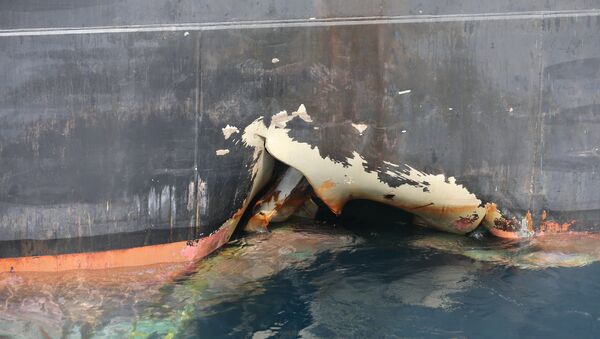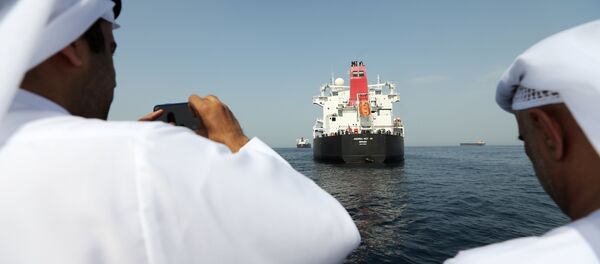A video allegedly showing Iranians sabotaging vessels off the UAE’s coast was posted on a number of Arabic Twitter accounts on 31 May, just a few days after US National Security Adviser John Bolton claimed that Tehran was “almost certainly” behind the 12 May attacks on four ships.
وتقول ايران نحن بعيدين عن التخريب .. هاهم الايرانيون وكيفية الوصول للناقلات المتحركة والصاق الالغام . pic.twitter.com/4CKVt1X2bJ
— بن مهاه المزروعي (@Binmaha) 31 мая 2019 г.
It now appears that the footage actually features men at the rudder of a Greek oil tanker in another location – not in the Gulf, an investigation by The Jerusalem Post has revealed.
READ MORE: Trump Says He Doesn't Want Iran to 'Fail as a Nation', Claims He Can 'Turn That Around'
According to the media outlet, referring to the ship-tracking website Marine Traffic, it’s the Ithaki Warrior oil tanker, which is currently located off the coast of Greece and was somewhere near Italy last month, that appeared in the video.
The newspaper suggested that the men were “apparently” performing a stunt.
The revelation comes as the UAE, Saudi Arabia, and Norway, whose ships were targeted on 12 May, issued a joint statement at a UN briefing on Thursday, claiming that limpet mines, which were used in a “sophisticated and coordinated operation”, had purportedly been placed by divers.
“The assessment of the damage to the four vessels and the chemical analysis of the debris recovered revealed it was highly likely that limpet mines were used in the attacks on the four vessels on 12 May 2019… The attacks required trained divers; the explosive charges were placed with a high degree of precision under the waterline, in ways that were designed to incapacitate the ships without sinking them or detonating their cargoes - indicating minute knowledge of the design of the targeted ships”, they said.
While the statement did not mention the culprit, US Secretary of State Mike Pompeo, as well as John Bolton, previously alleged that Iran could be behind the “sabotage”, even though an investigation is still underway, and Tehran has denied its involvement.
READ MORE: US General Claims Iranian 'Threat' in Gulf Region Remains 'Imminent'
On 12 May, four oil tankers – two Saudi, one Norwegian, and one UAE, were targeted in what Abu Dhabi described as “acts of sabotage” near Fujairah.
Tehran, for its part, urged for an investigation and cautioned against “any conspiracy orchestrated by ill-wishers” and “adventurism by foreigners” to undermine the region’s stability.
Tensions have been running high in the Gulf region since the US pulled out from the Iran nuclear deal in May 2018, but dramatically escalated last month after the Pentagon deployed an aircraft carrier strike group and a bomber task force to send a “clear and unmistakable” message to Iran that any attack on American interests or those of its allies would be met with “unrelenting force”.




